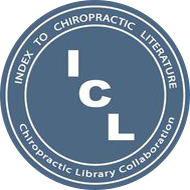Objective: The purpose of this study was to investigate if differences in spinal height changes in healthy individuals were observed after a period of spinal unloading using repetitive as compared with sustained lumbar extension exercises.
Methods: This study used a pretest, posttest, crossover design. Asymptomatic participants were recruited using convenience sampling. Thirty-two participants (15 male; 17 female) without back pain were included in the data analysis (mean, 24.4 years; range, 20-41 years). Participants performed sustained or repetitive prone lumbar extension exercises after 1 hour of sustained spinal unloading. Spinal height was measured using a stadiometer before and after the repetitive and sustained prone lumbar extension exercises.
Results: Paired t tests revealed no significant difference in spine height after repetitive (P = .774) or sustained (P = .545) prone lumbar extension after a period of spinal unloading. No significant difference between spinal height changes occurred between sustained (mean [SD], −0.28 [2.59] mm) and repetitive (mean [SD], −0.12 [2.42] mm) lumbar extension (P = .756).
Conclusion: In this group of asymptomatic individuals, sustained and repetitive lumbar extension exercises did not appear to affect spinal height after a period of spinal unloading.
This abstract is reproduced with the permission of the publisher; full text is available by subscription. Click on the above link and select a publisher from PubMed’s LinkOut feature.
|
